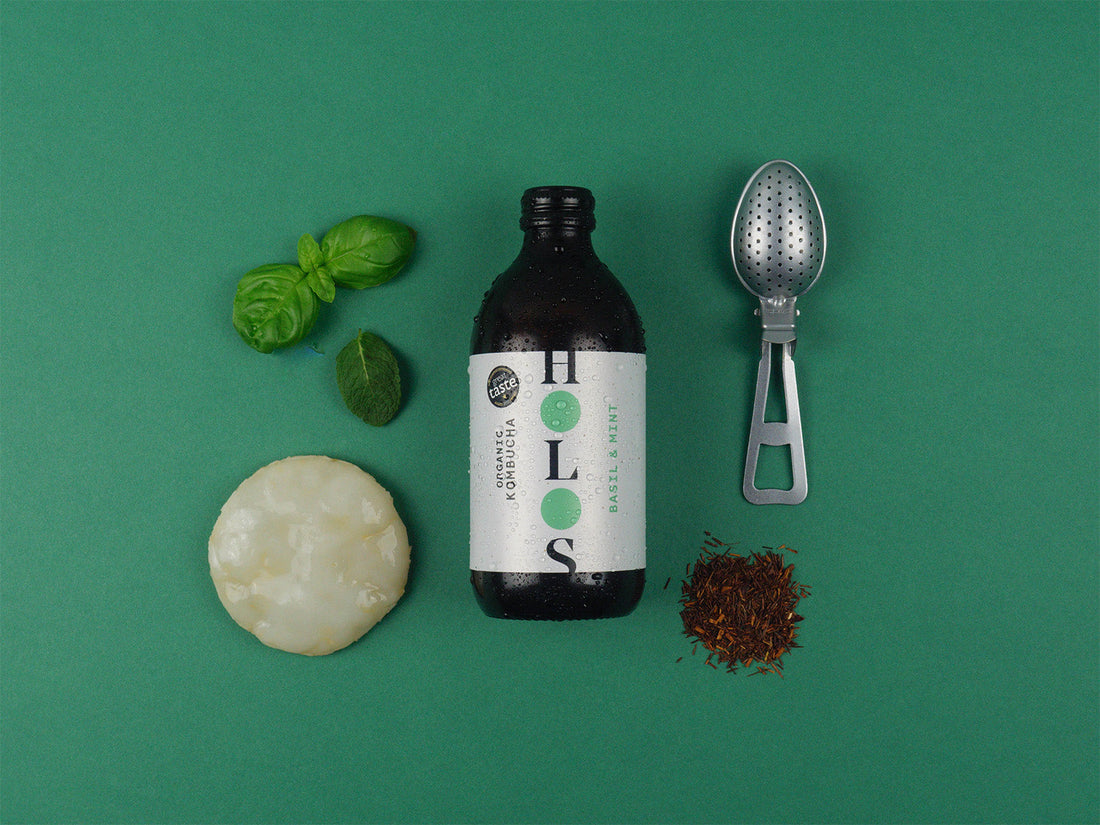Packed with probiotics, antioxidants, and a complex flavour profile, kombucha has gone from niche to mainstream. But as kombucha's popularity grows, so do your options — and one of the biggest choices you’ll face is whether to go organic or non-organic.
Spoiler: organic wins, and here’s why...
1. Cleaner Ingredients to Support Gut Health
Organic kombucha is made with tea and sugar that are certified organic, meaning they’re grown without the use of synthetic pesticides, herbicides, or genetically modified organisms (GMOs). Why does that matter?
Your gut health is directly linked to the quality of what you consume. Kombucha is prized for its probiotics, but if the ingredients are loaded with pesticide residue, you might be doing more harm than good.
2. More Ethical and Sustainable Farming Practices
Organic farming doesn’t just benefit your body — it benefits the planet. Organic tea and sugar are typically cultivated in ways that prioritize soil health, water conservation, and biodiversity.
When you choose organic kombucha, you're supporting sustainable agriculture and reducing your environmental footprint. Non-organic kombucha, on the other hand, may come from farms that rely heavily on chemicals, monoculture planting, and unsustainable practices.
3. Higher Antioxidant Content
Several studies suggest that organically grown plants can contain higher levels of antioxidants. Since kombucha is made from tea — a natural source of antioxidants like polyphenols — using organic tea could give your kombucha a nutritional edge.
Antioxidants help protect your cells from damage caused by free radicals, which are linked to aging and a variety of diseases. More antioxidants = more wellness power in every bottle.
4. No Hidden Additives or Artificial Flavors
Many non-organic kombuchas on the market cut corners by using artificial flavorings, preservatives, or added sweeteners to improve taste and shelf life. Organic kombucha brands are held to stricter standards, so you’re far less likely to find sneaky ingredients on the label.
When you buy organic, what you see is what you get: real fruit, real herbs, real tea. And honestly, your taste buds can tell the difference.
5. You Support Brands That Care
Choosing organic often means you're supporting smaller, mission-driven brands that value health, transparency, and sustainability. These companies tend to invest more in quality control, ethical sourcing, and community involvement.
Buying organic kombucha isn’t just a health choice — it’s a vote for a better food system.
Final Thoughts: Is Organic Kombucha Worth It?
If you're drinking kombucha for its health benefits, why not go all in? Organic kombucha ensures you're getting all the good stuff — probiotics, antioxidants, clean energy — without the toxins, additives, or question marks that come with non-organic versions.
Your gut, your taste buds, and the planet will thank you.
Buy a case of our award-winning organic kombucha today and discover the benefits yourself: https://holoskombucha.com/products/organic-kombucha-mixed-case?variant=53530945388918

